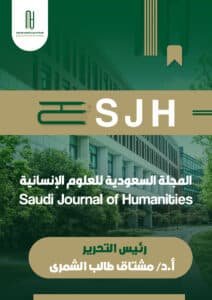د. خالد بشير محمد
أ. رضا علي عمر الصالح
الملخص :
هدفت هذه الدراسة إلى التعرف علي تحليل اثر الرقابة المحاسبية في تحسين اداء المصارف الإسلامية في ليبيا ، وذلك من خلال التعرف علي مفهوم الرقابة المحاسبية ، ولتحقيق هذه الأهداف تم إتباع المنهج الوصفي التحليلي وذلك من خلال الاطلاع علي الكتب والمجلات والرسائل العلمية وما يتوفر علي الإنترنت بالشكل الذي يخدم أغراض الدراسة ، وقد تم الاعتماد علي المنهج الوصفي التحليلي لتحليل البيانات واستخلاص النتائج باستخدام البرنامج التحليل الإحصائي SPSS في الدراسة، كما استخدم الباحثان الاستبيان لتجميع البيانات اللازمة لإجراء هذه الدراسة حيث تم توزيع الاستبيان على عينة من الموظفين العاملين في مصرف الجمهورية للصيرفة الإسلامية – فرع الزاوية، حيث بلغ عدد المشاركين في الدراسة حوالي 90 موظفًا من مختلف المستويات الوظيفية، بما يشمل المديرين الماليين، مدققي الحسابات، موظفي الرقابة الداخلية، والمحللين الماليين ، وبعد المراجعة تبين أنها صالحة للمعالجة الإحصائية كلها وبنسبة 100% ، فقد تم حصر ذلك فقط واستخدام مسح شامل لكافة العينة ، ثم توصلت الدراسة إلى مجموعة من النتائج أهمها: أن الالتزام بالمعايير المحاسبية وحده ليس كافيًا لضمان الأداء المالي الجيد، بل يجب أن يكون مدعومًا بسياسات رقابية صارمة ومتابعة دورية لتطبيق هذه المعايير ، أن بعض أنظمة الرقابة الحالية لا توفر الحماية الكافية ضد المخاطر المالية، مما يُشير إلى الحاجة إلى تطوير آليات رقابية أكثر فعالية في إدارة المخاطر المصرفية، وقد خلصت الدراسة إلي مجموعة من التوصيات أهمها : ينبغي أن تعتمد المصارف الإسلامية على برامج تدريبية دورية تُركز على رفع كفاءة الموظفين في مجال الرقابة المحاسبية، وذلك من خلال ورش العمل والدورات التدريبية التي تُواكب التطورات الحديثة في المجال المحاسبي ، يجب أن تلتزم المصارف بتطبيق معايير إعداد التقارير المالية المتطورة لضمان تحقيق أعلى مستويات الدقة والشفافية، مما يُساعد في اتخاذ قرارات سليمة قائمة على بيانات موثوقة
Abstract:
This study aimed to identify the analysis of the impact of accounting control on improving the performance of Islamic banks in Libya, by understanding the concept of accounting control. To achieve these objectives, the descriptive-analytical approach was followed by reviewing books, journals, scientific theses, and available online resources in a way that serves the purposes of the study. The descriptive-analytical approach was also relied upon to analyze data and extract results using the Statistical Package for the Social Sciences (SPSS) program in the study. The researchers also used a questionnaire to collect the necessary data for this study, where the questionnaire was distributed to a sample of employees working at the Al-Jomhouria Bank for Islamic Banking – Al-Zawiya Branch. The number of participants in the study reached approximately 90 employees from various job levels, including financial managers, auditors, internal control staff, and financial analysts. After review, it was found that all of them were valid for statistical processing, with a rate of 100%. This was specifically enumerated and a comprehensive survey of the entire sample was used. The study then reached a set of results, the most important of which are: that adherence to accounting standards alone is not sufficient to ensure good financial performance, but rather must be supported by strict control policies and periodic monitoring of the application of these standards; that some current control systems do not provide adequate protection against financial risks, which indicates the need to develop more effective control mechanisms in managing banking risks. The study concluded with a set of recommendations, the most important of which are: Islamic banks should adopt periodic training programs that focus on raising the efficiency of employees in the field of accounting control, through workshops and training courses that keep pace with modern developments in the accounting field; banks should commit to applying advanced financial reporting standards to ensure the highest levels of accuracy and transparency, which helps in making sound decisions based on reliable data.
